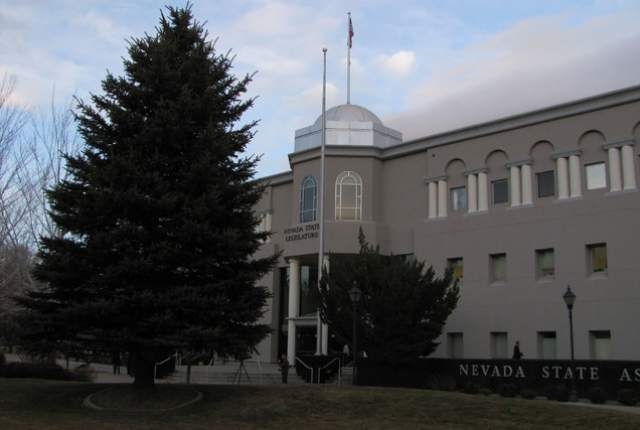Minimum wages, maximum hassles
So, what was that all about?
There was more than a little confusion in the Senate’s Commerce, Labor and Energy Committee this morning, as lawmakers tried to figure out why the wording of a just-introduced bill didn’t quite match up with the testimony from its backers. In the end, they may have saved Nevada’s low-wage workers from some seriously bad news.
At issue was Senate Bill 224, legislation that ostensibly seeks to define what constitutes an “independent contractor” versus a regular employee. It turns out, if your employer sets your work hours, your duties, prescribes the way you go about doing your job, takes money out of your paycheck for taxes and benefits, then you’re an employee.
But if you contract with a business to provide a service, that business doesn’t give you work hours or directions, if you can offer your services to anybody (even a competitor in the same industry), and don’t have taxes, insurance premiums or the like taken out of your paycheck, then you’d be an independent contractor.
Clear enough, right? But that’s not where most of the controversy came about. Because this same bill, in Section 3, says this:
“A person may not recover unpaid wages in a proceeding pursuant to Section 16 of Article 15 of the Nevada Constitution or this section and NRS 608.250 to 608.290, inclusive, unless he or she gives his or her consent in writing to become a plaintiff and his or her consent is filed with the court or agency in which the proceeding is brought.”
Now, proponents of the bill (attorneys for the Las Vegas law firm of Kolesar & Leatham) claimed that section of the bill would only apply to cases in which there was a dispute as to whether a person was an independent contractor or a regular employee.
But it doesn’t say that.
It says “a person,” meaning all persons. And Section 16 of Article 15 of the Constitution is the one that requires payment of a minimum wage to all employees, not independent contractors, who are exempt from receiving minimum wages. Furthermore, NRS Section 608.250-608.290 is the part of state law that requires a minimum wage be paid to employees in private employment, and outlines penalties for violations.
So either there was a major mistake in drafting this bill, or somebody intended to make it a whole lot harder for a group of employees to collect back pay and damages from an employer who isn’t paying the proper minimum wage. Lobbyists for the Nevada Justice Association, the state’s trial lawyers group, said it would primarily benefit lawbreakers. “This would really protect the worst of the worst employers out there,” said attorney James Kemp.
And if that wasn’t bad enough, the bill also featured a less-noticed but still problematic section that would essentially chill ongoing lawsuits against employers. That’s right: Sections 7 and 8 reads as follows: “The amendatory provisions of this act apply to an action or proceeding to recover unpaid wages pursuant to Section 16 of Article 15 of the Nevada Constitution or NRS 608.250 to 608.290, inclusive, and section 3 of this act in which a final decision has not been rendered before, on or after the effective date of this act. This act becomes effective upon passage and approval.”
Now, it may be cynical to say so, but when language is inserted into a bill that would apply retroactively (or would chill ongoing litigation commenced under existing statutes), well, it appears something downright shady is going on.
And it’s not like this is merely theoretical. Several class-action lawsuits are currently pending against Nevada businesses for failure to pay the proper minimum wage. One, filed by attorney Bradley Schrager of Wolf, Rifkin, Shapiro, Schulman, Rabkin target several restaurants in Las Vegas that allegedly paid a lower minimum wage to workers without providing the health care required under Article 15, Section 16 of the Constitution. If SB 224 were to become law, only the plaintiffs actually involved in those lawsuits, or those who signed a consent form, would be able to recover back wages, as opposed to current law, which would allow a court to order a wayward business to pay back wages to all affected employees, regardless of whether they were actual plaintiffs. The result would be to make class actions for minimum wage claims much harder, if not impossible.
At the end of today’s hearing, even committee Chairman James Settelmeyer, R-Minden, had acknowledged the problems at least with Section 3 of the bill, and suggested it might be better to simply remove it from the legislation altogether. An amended version may return to the committee.






















